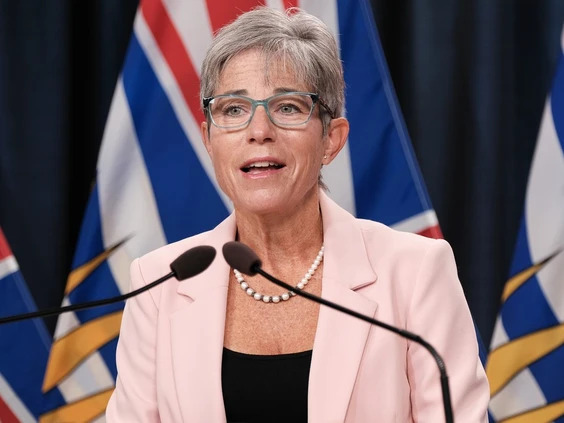British Columbia’s post-secondary education minister says no new institutions will be allowed to enrol international students for two years as the province seeks to eliminate “exploitive practices” in the field.
Selina Robinson also announced the province was setting minimum language requirements at private institutions so international students would be “better prepared” before coming to B.C.
She said in a release Monday that there would be more frequent inspections of schools to ensure standards are met, adding that many students are being taken advantage of.
“That’s why we’re introducing more stringent requirements for institutions and robust safeguards to protect international students against bad actors, provide them with a better path to success, and make sure B.C. continues to attract the talented students we need to fill significant gaps in the labour market and drive our economy forward,” she said.
The moves come after the federal government announced last week that it was capping the number of study permits it approves over the next two years to slow the ballooning international student program.
Immigration Minister Marc Miller said the limit would reduce the number of new student visas by 35 per cent for this year.
The student program has grown significantly, including a 31-per-cent jump to more than 800,000 students in 2022 from the year before, putting added strain on Canada’s housing market.
Robinson said the pause on new institutions would last until February 2026.
New standards would include “higher assessment criteria for degree quality, demonstrated labour-market need for graduates and appropriate resources, and student supports,” the statement said.
Institutions would also be required to post tuition costs for the whole time someone is studying.
“This ensures incoming students know the entire costs of their education before they start their program,” the statement said.
It said B.C. has more than 175,000 international post-secondary students from more than 150 countries, out of a total 545,000 post-secondary students in public and private institutions.
About 54 per cent of international students are in private post-secondary institutions, according to statement.

